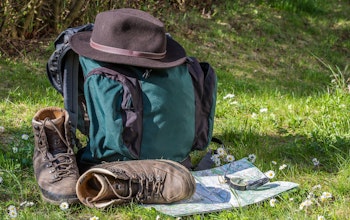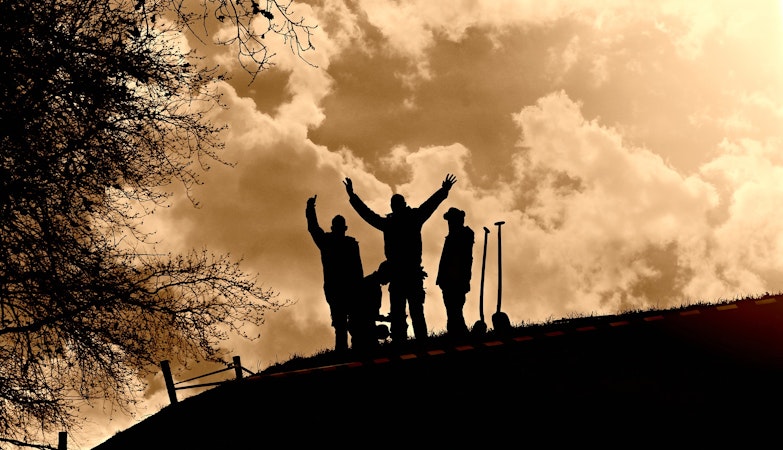“What a cruel thing war is …to fill our hearts with hatred instead of love for our neighbors.”
General Robert E. Lee (1807 – 1870)
Survival situations always involve serious ethical and moral decisions. Wartime and combat zone survival create even greater challenges to established “right-or-wrong” paradigms. The ongoing conflicts in the Middle East and Ukraine illustrate these difficulties. Even on American soil, we see demonstrations and seemingly unresolvable issues developing on our streets and in our communities. As wartime conditions grow closer to home, and the specter of a true World War Three looms on the horizon, what will be considered right, wrong, justified, or necessary requires considerable thought and examination by responsible citizens preparing for this “worst case” scenario.
The concept of ethics is distinguishable from morals, in that ethics are much more practical. Morals are ideas or opinions driven by a desire to do good; ethics are rules that establish allowable actions and correct behavior. An ethical code may or may not be definably “moral,” as it is simply an established set of rules. Under normal circumstances, a citizen has pre-established moral principles and ethical standards provided by society and its laws. Under wartime chaos and warzone violence, citizens will be faced with moral dilemmas and ethical conundrums, without guidance.
While the trained solder has orders to follow and a chain of command to sort out moral and ethical conflicts, the civilian caught in a life-and-death combat situation must make decisions and cope with conflicting emotional consequences alone. Survival ethics is guided by the basic survival imperative, but the ethics of survival in wartime and in a warzone is more complicated. The difference between right and wrong can be clouded by ideological, ethnic, racial, religious, and national affiliations. One’s proximal, social, or family relationships render philosophical “neutrality” unfeasible. While natural disasters or a singular foreign enemy may unite a population, more complex modern conflicts can create all manner of division, paranoia, and distrust.
Under wartime deprivations, normally honest and law-abiding citizens may resort to theft or black-market dealings. Citizens with weak moral codes and selfish tendencies are inclined to commit a full range of criminal acts once the prohibitions of effective law enforcement are removed. Soldiers and citizens exposed to the violence and trauma of actual warfare often become desensitized or even malevolent and violent as a result. It is no accident that gangs of the Wild West, and the Gangsters of the Roaring Twenties followed the Civil War and World War One. War releases the most terrible inclinations of humanity. Be aware that there are “nice people,” but there are also people who are just “being nice.” Ultimately, the citizen must establish his or her own code of ethics. A few examples of ethical and moral challenges follow.
War Zone Ethics
By James C. Jones
“What a cruel thing war is …to fill our hearts with hatred instead of love for our neighbors.”
General Robert E. Lee (1807 – 1870)
Survival situations always involve serious ethical and moral decisions. Wartime and combat zone survival create even greater challenges to established “right-or-wrong” paradigms. The ongoing conflicts in the Middle East and Ukraine illustrate these difficulties. Even on American soil, we see demonstrations and seemingly unresolvable issues developing on our streets and in our communities. As wartime conditions grow closer to home, and the specter of a true World War Three looms on the horizon, what will be considered right, wrong, justified, or necessary requires considerable thought and examination by responsible citizens preparing for this “worst case” scenario.
The concept of ethics is distinguishable from morals, in that ethics are much more practical.
Morals are ideas or opinions driven by a desire to do good; ethics are rules that establish allowable actions and correct behavior. An ethical code may or may not be definably “moral,” as it is simply an established set of rules. Under normal circumstances, a citizen has pre-established moral principles and ethical standards provided by society and its laws. Under wartime chaos and warzone violence, citizens will be faced with moral dilemmas and ethical conundrums, without guidance.
While the trained solder has orders to follow and a chain of command to sort out moral and ethical conflicts, the civilian caught in a life-and-death combat situation must make decisions and cope with conflicting emotional consequences alone. Survival ethics is guided by the basic survival imperative, but the ethics of survival in wartime and in a warzone is more complicated. The difference between right and wrong can be clouded by ideological, ethnic, racial, religious, and national affiliations. One’s proximal, social, or family relationships render philosophical “neutrality” unfeasible. While natural disasters or a singular foreign enemy may unite a population, more complex modern conflicts can create all manner of division, paranoia, and distrust.
Under wartime deprivations, normally honest and law-abiding citizens may resort to theft or black-market dealings. Citizens with weak moral codes and selfish tendencies are inclined to commit a full range of criminal acts once the prohibitions of effective law enforcement are removed. Soldiers and citizens exposed to the violence and trauma of actual warfare often become desensitized or even malevolent and violent as a result. It is no accident that gangs of the Wild West, and the Gangsters of the Roaring Twenties followed the Civil War and World War One. War releases the most terrible inclinations of humanity. Be aware that there are “nice people,” but there are also people who are just “being nice.” Ultimately, the citizen must establish his or her own code of ethics. A few examples of ethical and moral challenges follow.
- Use of force: Police are often caught in a lose-lose scenario: using force can be seen as brutality, and not using force can mean failure in their duty to the law and the community. For the citizen, the question is this: “Is the use of force—or threat of force—justifiable and reasonable under the current circumstances?” You may need to use force against family members or neighbors, to get them out of harm’s way, or to prevent their obstinance or obliviousness from endangering yourself and others. You are doing the seemingly wrong thing, but for a good reason.
- Use of deadly force: Using any kind of deadly or potential deadly force is an extremely drastic action. Unfortunately, modern media and video games have trivialized killing and desensitized the public. No responsible citizen should look forward to taking a human life, but during the gravest extreme of wartime, such an act may be inescapable. Terrorists imbued with hatred and extreme views will kill innocent civilian men, women, and children without the slightest hesitation. Criminals simply have no moral code or empathy for victims.
Previously peaceful citizens enraged, shocked, or misled by wartime and warzone conditions may become predators. If deadly force is the only way to save yourself and others, be mentally prepared to do it. Failure to act may result in the death of yourself and those you care about. Regardless of the justification, using deadly force will probably result in a lifetime of guilt and regret.
- Looting and foraging: During periods of civil unrest, looters are simply opportunistic criminals using excuses to justify theft and destruction, but in some cases such illegal and immoral behavior may be fully justified. Should cold and homeless refugees from a bombed city pass by an intact home along the road? Should groceries be left on the shelves of an abandoned store while children are hungry? One example of laws vs ethics is a case where elderly were being evacuated from a flood. The local Fire Department was prohibited from “opening” the convenience store across the street to access supplies for the patients even though the flood waters would soon destroy the supplies. If it makes you feel better leave an IOU.
- Taking sides: During World War Two, it was simple as allies versus Nazis and “Japs”. Your side was determined by your location. In today’s fractured, globalized, and multiethnic society, factionalism, regionalism, and media-generated division can cause hostile and potentially violent conflict between friends, neighbors and even family members. At one time, Jews and Arabs lived peacefully in Palestine. South Koreans have family in North Korea. Russia and Ukraine have much in common. Once violence has been initiated by one side and responded to by the other, they become implacable enemies. This is a horrible situation. If you don’t pick a side, everyone will regard you as an enemy and your situation will be untenable. Of course, acts of hate, brutality, violence, and oppression by one side may help you make your choices.
- To help, or not to help: Should you share your food, water, and medical supplies with friends, neighbors or strangers who have not prepared themselves? Should you stop rendering aid to the injured if it puts you or your family at risk? These are two classic survival ethics questions. There is no absolute right-or-wrong answer, but the “do what you can, if you can, when you can” ethical principle applies. Note that police are trained to bypass injured civilians and move on to neutralize the threat. You cannot be your brother’s keeper unless you are able to be your own keeper.
Establishing your Code of Ethics
Survival ethics come down to life and death: yours, and that of others you encounter. Do you save life, risk life, or take life? A primary question that everyone must answer is: how do you define your life? Are you what you are physically, or who you are, morally and spiritually? Are you about how you look and what you have, or are you about what you believe in and stand for? While your body is mortal, your values and ideas are immortal. So, does your survival action justify your continued physical survival, or does your survival alone justify your action? Is what’s best and safest for you also best and safest for what you stand for?
In survival, laws are not an issue. You are left with your own moral code and ethical concepts to make life and death decisions. You must ask yourself:
- What is the right thing to do, based on my values?
- What is the best thing to do for me?
- What is the best thing to do for others?
- What represents my values and ideas?
- What is my duty?
- Would I want others to do this to me or for me?
- How will others I care about judge my actions?
Yes, the answers to each question may be conflicting! What can you do? What should you do? What do you want to do? In the heat of a survival situation there will be no time to engage in a philosophical discussion. Most true survival situations are about risking your life or risking or taking the life of others. You must have an idea of where you draw the lines. In a situation where you may need to choose to risk or even sacrifice your own life, when would you do it?
- Never—even if it would protect those I care for or values I stand for?
- Only if absolutely necessary to protect the lives of others that I care about?
- To defend the life of others being attacked or abused?
- Only if necessary to defend my values and ideas?
- Only if necessary to remain free?
- To defend my property?
- To maintain my pride and honor?
- Rather than live an unpleasant life?
If you know when you would be willing to put your own life on the line, have you established when you would take a life or put the life of others at risk?
- Never—not even to defend my life and that of those I care for?
- Only in the immediate defense of my life and those I care for?
- To defend the life of others being attacked or abused?
- To defend my personal freedoms and rights?
- To defend my values and ideas?
- In order to remove potential threats to my life and freedom?
- To defend my property and lifestyle?
For the purposes of the above questions, taking or risking life is not just about shooting or being shot at. Risking your life could be the act of sharing your food, entering a danger zone to rescue someone, or stopping to help instead of moving along. Taking life could be as simple as failing to aid others who are in need of the food or water they need to survive.
We may look at our moral code as a compass that directs us towards the right action, but ethics is the map that guides our route. Ethical choices must be free of fear, anger, hate, pride, and other negative emotions. Flexibility and adaptability are key concepts in survival psychology. Rigid moral codes, while valuable assets during “normal” times, may conflict with survival imperatives under emergency conditions. The lines between right and wrong can become blurry in the heat of survival and conflict. What can you live with, and what would you die for?
The true survivor must know him or herself and have a firm ethical foundation upon which to base life-and-death decisions. How and why we survive is as important as that we survive. These kinds of situations have only lose-lose solutions, but they are easier for those who have considered them in advance balancing the risks and values. Many such decisions will be difficult to live with—regardless of the outcomes.









